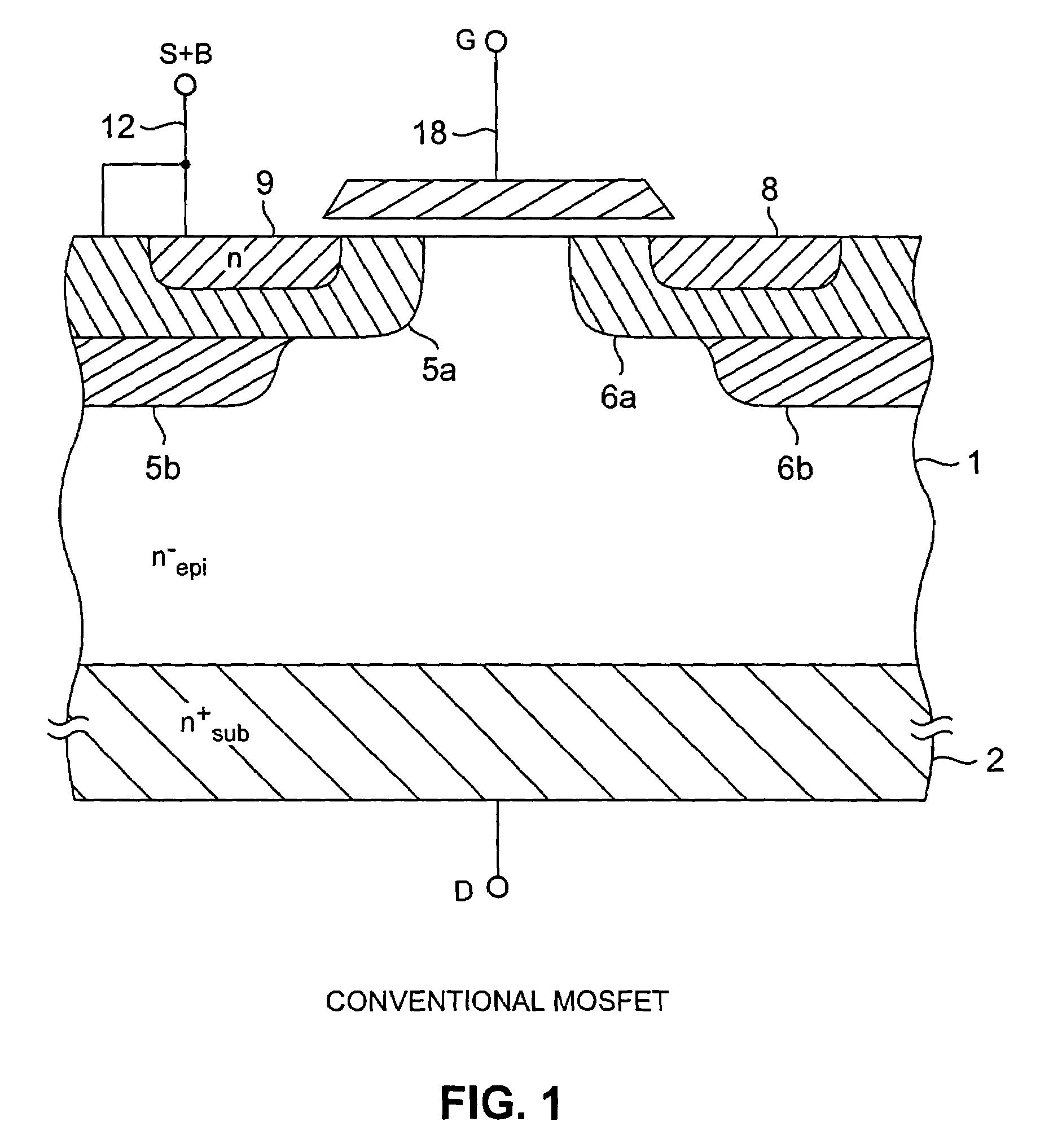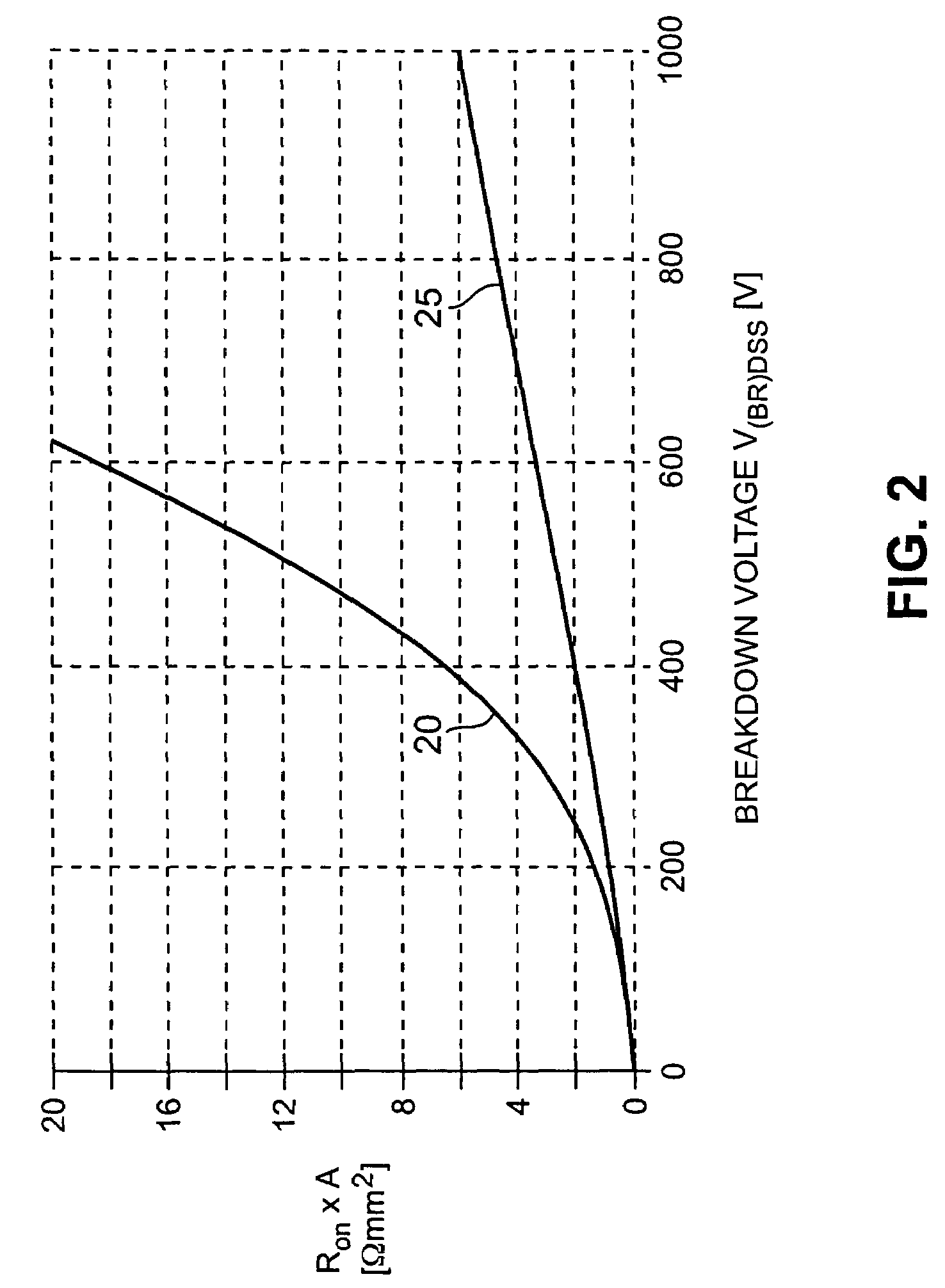Power semiconductor device having a voltage sustaining region that includes terraced trench with continuous doped columns formed in an epitaxial layer
a technology of semiconductor devices and electrodes, applied in the field of semiconductor devices, can solve the problems of difficult to avoid non-uniformities in the dopant gradient of columns, rapid increase in resistance of devices, and difficult to resist rapid increase in resistan
- Summary
- Abstract
- Description
- Claims
- Application Information
AI Technical Summary
Problems solved by technology
Method used
Image
Examples
Embodiment Construction
[0022]In accordance with the present invention, a method of forming the p-type columns in the voltage sustaining layer of a semiconductor power device may be generally described as follows. First, a terraced trench is formed in the epitaxial layer that is to form the voltage sustaining region of the device. The terraced trench is formed from two or more co-axially located trenches that are etched at different depths in the epitaxial layer. The diameter of each individual trench is greater than the diameter of the trenches located at greater depths in the epitaxial layer. Adjacent trenches meet in horizontal planes to define annular ledges, which arise from the differential in the diameter of the adjacent trenches. P-type dopant material is implanted into both the annular ledges and the bottom of the deepest trench in a single implantation step. The implanted material is diffused into the portion of the voltage sustaining region located immediately adjacent to and below the ledges an...
PUM
 Login to View More
Login to View More Abstract
Description
Claims
Application Information
 Login to View More
Login to View More - R&D
- Intellectual Property
- Life Sciences
- Materials
- Tech Scout
- Unparalleled Data Quality
- Higher Quality Content
- 60% Fewer Hallucinations
Browse by: Latest US Patents, China's latest patents, Technical Efficacy Thesaurus, Application Domain, Technology Topic, Popular Technical Reports.
© 2025 PatSnap. All rights reserved.Legal|Privacy policy|Modern Slavery Act Transparency Statement|Sitemap|About US| Contact US: help@patsnap.com



